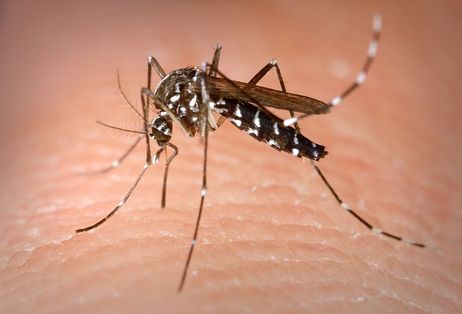Combating Infectious Diseases with Artificial Intelligence
Published Apr-02-18Breakthrough:
A sophisticated artificial intelligence platform to detect Dengue Fever outbreaks months before they happen.
Company:
Artificial Intelligence in Medical Epidemiology (AIME), United States
The Story:
 Many of our 21st-century problems can be solved by big data and artificial intelligence. One of those challenges is improving our ability to forecast future infectious disease outbreaks and epidemics before they even happen.
Many of our 21st-century problems can be solved by big data and artificial intelligence. One of those challenges is improving our ability to forecast future infectious disease outbreaks and epidemics before they even happen.For tens of millions of people, particularly those in tropical regions, a mosquito bite can be more than just a minor irritation. It can bring serious health complications and even death.
According to the World Health Organization (WHO) there are 390 million new Dengue Fever infections every year and half the world's population is at risk. The Asian tiger mosquito-borne viral infection causes a flu-like illness which can develop into a lethal complication called severe dengue. This is one of the leading causes of serious illness and death among children in some Asian and Latin American countries.
There are no specific treatments or cure but early detection and proper medical care and attention lower fatality rates below 1%.
Predicting Dengue Fever Outbreaks
Enter artificial intelligence, big data and the Dengue Outbreak Prediction platform developed by a company called Artificial Intelligence in Medical Epidemiology (AIME). It is an algorithm-based approach to monitor the disease that analyzes public health data and data from sources such as previous outbreaks, wind speed, weather and a location's proximity to water. Other factors include the health records and income levels of people.
"What we do is we analyze data from the past year, past months, past days of dengue cases," explained Rainier Mallol one of the platform's creators, in an interview with CNN.
"Plotting these on maps, they add other factors. We have a system that obtains over 276 variables. Weather variables, geographical variables (and) socio-economic variables.”
The platform was the result of more than two years research effort and several months of machine learning analysis. It has been adopted by the Malaysian government and regional governments in Brazil and the Philippines and its creators claim it has an accuracy of 86.37%. They say it is able to provide the exact geolocation and date of the next dengue outbreak, up to three months in advance.
Early detection of outbreaks can give authorities and medical and healthcare professionals valuable time to take pre-emptive actions such as the fumigation of zones likely to be affected.
Saving Lives with Artificial Intelligence
AIME hopes to roll out its platform to many other parts of the world that are blighted by Dengue Fever outbreaks. It is also working on algorithm-based platforms to diagnose other illnesses.
"With our platform, we can aid in the prevention of diseases, with the ultimate goal of removing the chance of epidemics and eliminating viruses. Predicting dengue is just our first step," said Mallol and Dhesi Raja, co-founders of AIME.
Among the other epidemic diseases they want to turn their attention to are tuberculosis, malaria and HIV/AIDS.
Next Story »

